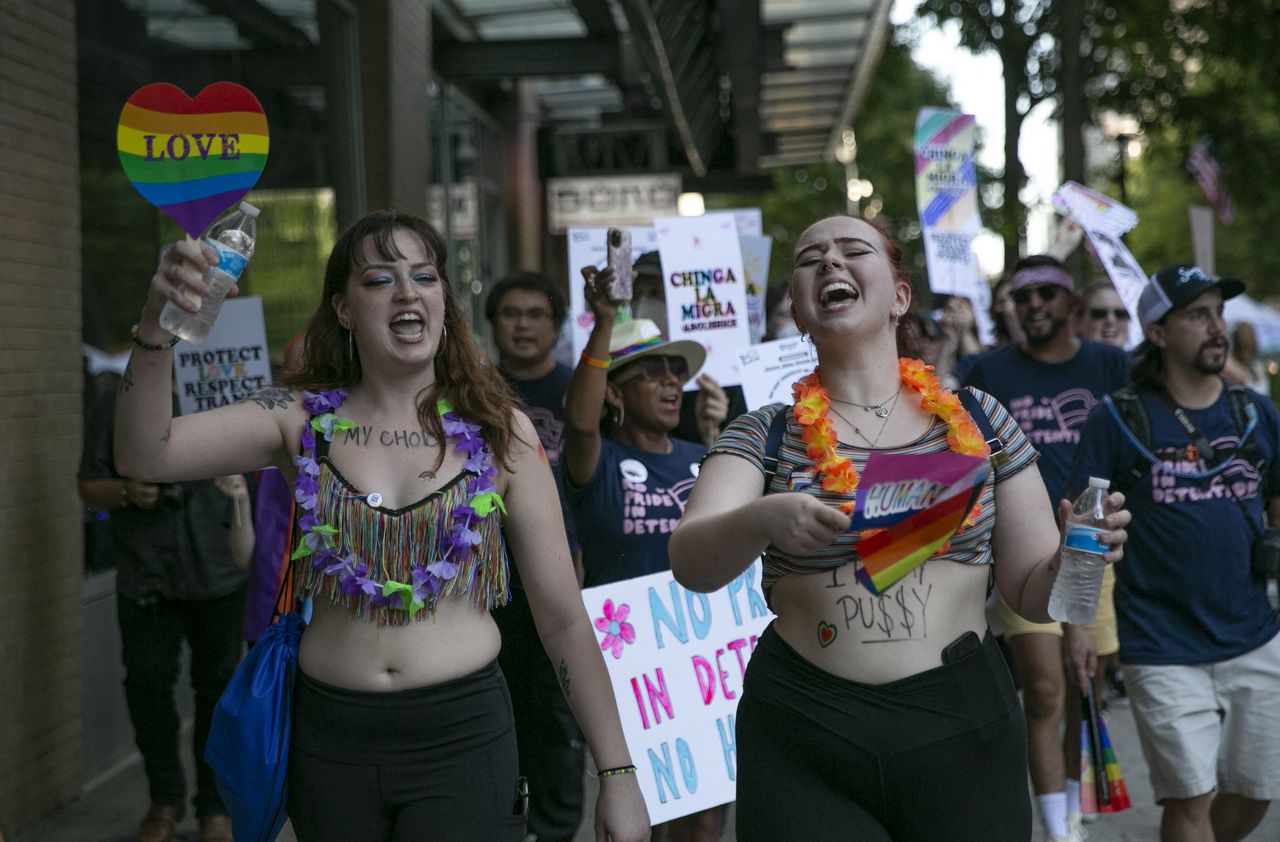
North Carolina joined 21 other states in shrinking freedoms for trans youth, after Republican lawmakers overrode several vetoes of Democratic Gov. Roy Cooper.
The measures — HB808, HB574 and SB49 — ban gender-affirming care for minors, prevent trans athletes from participating in team sports that align with their gender identity and limit discussions of gender and sexuality in schools, respectively.
“For me, it just is so straightforward: Why would we pass legislation that would only make life harder for any individual here in our state?” said Rebby Kern, the director of education policy for nonprofit advocacy group Equality NC. The organization characterized Wednesday’s override as resulting in a “slate of hate.”
One bill, SB49, mandates teachers to report students who come out as transgender or gender non-conforming. Advocates have compared the bill, also known as the Parental Bill of Rights, to Florida’s Don’t Say Gay Bill because of its prohibition of conversations related to gender identity or sexual orientation in the classroom and the permissions it grants to parents.
Moms for Liberty, which the Southern Poverty Law Center calls a right-wing extremist group, hailed SB49′s passage as a monumental win.
The group, headquartered in Florida, pushes for “parental rights” in schools nationwide, but LGBTQ+ advocates strongly oppose their growing presence in North Carolina.
“It takes a long time for young people to feel safe enough to come out, not only in their school communities, to their educators and peers, but also at home,” Kern said. “Now, with this bill in place, we’re going to create a stronger environment of fear and hostility.”
The news of the Legislature overrides was unsurprising to some North Carolina educators. A controversial party switch in May by North Carolina Rep. Tricia Cotham, who changed her affiliation from Democrat to Republican, yielded a supermajority for Republicans.
“The state as a whole, especially our state government, is moving or remains in a very conservative stance toward diversity and inclusion,” said Heather Ribar, who teaches English in Johnston County’s public school system. The district lies about 45 miles south of North Carolina’s capital.
Some of her colleagues say the new legislation has disrupted the inclusive environment the district has worked to cultivate over the last few years.
One of them, Beth Otto, is an assistant principal at South Johnston High School’s Ideal Academy.
“We are sensitive to the individual needs and requests of all our students,” Otto said. “We honor their requests because we want school to be a place where they feel comfortable and loved,”
Allison Scott remembers her time as a trans student in North Carolina schools as anything but comfortable. Peers bullied her because of her identity, which took a profound toll on her mental health. Now the director of impact and innovation at Campaign for Southern Equality, she worries what these bills will mean for new generations of trans students.
Another measure enacted by the legislative veto overrides — HB574 — will require students on middle, high school and intercollegiate sport teams to participate on teams that align with their sex assigned at birth. Sponsors of the legislation acknowledge that, of the state’s 180,000 student athletes, only 15 are openly trans.
The final measure that will take effect as a result of the overrides — HB808 — makes it unlawful for healthcare professionals to provide gender-affirming care to trans people under 18. Doctors rarely perform gender-affirming surgeries on minors although it is considered safe and medically necessary by several national and international medical associations.
“This is a manufactured fear around especially trans feminine people,” Scott said. “We’ve all seen this coming for years. Right-wing extremism has been creeping into American politics, and reached a crescendo in 2016. But what has really stuck around is an agenda that aims to ban LGBTQ people from all spheres of life.”
Republicans are at the helm of the growing number of states with heavy restrictions on transgender people.
By June of this year, 19 states had enacted laws banning gender-affirming surgery for trans youth, with Arkansas being the first.
In Missouri, Republican Gov. Mike Parson signed into law two bills banning gender-affirming care for minors, and preventing transgender girls and women from participating on female sports teams. The law is set to go into effect on Aug. 28.
Days before, Texas Gov. Gregg Abbott, also a Republican, signed a law barring trans kids from receiving puberty blockers and hormone therapies. That measure also requires children already receiving these treatments to discontinue their care.
In Kentucky, a federal judge cleared the way for restrictions the legislature enacted on gender-affirming care for children to take effect in July.
LGBTQ+ advocacy groups, educators, trans students and their parents met each decision with the same outcry but so far only Arkansas’ ban has successfully been struck down.
“This isn’t the end,” Scott said. “We are resilient, and we’re gonna win. There is hope for youth and their families and adults in our state.”
Makaelah Walters is a freelance reporter based in North Carolina. Previously, she was the Institute for Southern Studies’ 2022 Julian Bond Fellow, where she covered policy and politics in the South. Her work has been published in The Guardian and Prism.






